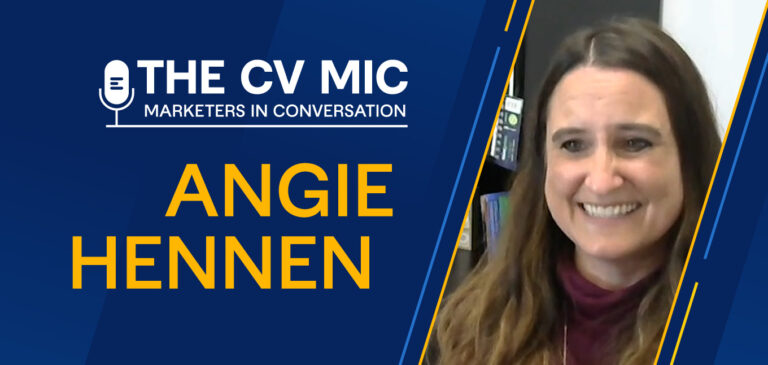Bringing on extra help makes sense at this point in your business growth. As you scale your content production, hiring freelancers to inform and execute the tasks your team doesn’t have the bandwidth for means you’re able to reach more goals, generate better-qualified leads and close those lingering sales.
But, who should you hire? What types of freelancers can help?
Do I need experts?
At a glance, you just need help. We get it. There aren’t enough people in the mix of your daily workflow to get the work done. But, once you start looking into freelance talent to partner with, you’ll soon discover that freelancers are just as diverse as the job titles on your team roster.
Some are experts in a specific topic, others are experts at creating content and some blur that line with their knowledge base and content creation skills. While vetting freelancers for your projects, you’ll see these terms pop up often: generalist, journalist, influencer and subject matter expert (SME). Each of these categories of freelancers can bring value to your content creation needs, but which best aligns with your content plan and content strategy? That’s for you to decide!
What are generalists?
Generalists can do it all. They love to learn, ask questions and dive into new topics. They write in a variety of niches because they enjoy tackling new things each time they tickle the keyboard. Generalists bring a fresh set of eyes to your topic, which can be a refreshing change when your team feels like they’ve said all there is to say about your preferred keywords.
Bring on a generalist if your content plan spans a wide variety of topics and requires light online research from trusted journals and authoritative associations. Generalists crave learning new things! Generalists are best paired with TOFU content assets since they may be embracing your topic for the first time and excel at explaining things in a high-level format, in a language that will appeal to potential consumers.
For example, let’s say you’re the head of marketing for a small, but growing consumer packaged goods product in the health niche. Your company makes gluten-free, sugar-free granola bars and is expanding into granola crumbles to use for yogurt and dessert toppings.
A generalist might write blog posts for you about the top 10 things to have in your gym bag (including post-workout snacks — like your granola bars!) or five kid-friendly snacks for your next family road trip. Again, your granola bars will get a glowing recommendation and backlink to a product page.
Why should I work with a journalist?
Journalists dig deeper. In addition to researching your topic online, they’re not afraid to conduct original interviews or reach out for comments from industry experts who can shed interesting insight on the subject you want to explore. Journalists are trained to ask open-ended questions to get to the heart of the topic, find impactful facts and unique angles.
Partnering with a journalist is a good idea for both MOFU and BOFU content writing. Journalistic content usually speaks to readers at a more informed level, answering questions and enticing the reader to learn more or feel trust from a company. Journalists can tackle some killer TOFU content as well, but won’t work as quickly as a generalist! Why? Journalists tend to lay out more details, examples and friendly pros/cons in their writing, and that takes time.
If your granola bar company brought a journalist into the mix, expect this type of freelancer to be ready to teach you something. Have you always wanted to know how the almonds you source are grown and harvested? A journalist will find out and share an engaging story for you and your audience. Need case studies? A journalist would be happy to chat with your superstar consumers and learn why they keep coming back for more of your product.
How can an influencer help?
Influencers love to gab. They’ve worked hard to build up an audience all their own based on the things that are important to them, and they’re ready to share the news of your product or business. Although an influencer may not get an A+ rating in the writing or research categories, what they do radiate is trust. Their fans love them and hang onto their every video, snapshot and word, typos and all.
Joining forces with an influencer means merging their audience with yours through a friendly partnership. An influencer will chat about your brand in a way that’s conversational and organic. This approach creates empathy, especially around touchy subjects. People want to hear from people, not a business, in a time of need. Influencers are great to bring on in any stage of your customer journey since their messaging can be aligned with a specific goal or pain point, via personalized content.
Let’s say your keyword analysis for the granola bar company reveals many of your audience members are experiencing embarrassing health problems that led to a diagnosis of Celiac disease and adopting a gluten-free lifestyle. Bloating. Diarrhea. Fatigue. None of these things are fun to chat about.
But, if you hire an influencer to share her journey with similar autoimmune digestive issues, your readers will connect with her on a personal level. She’s just like me, they’ll think. And those gluten-free granola bars might just become your readers’ new go-to snack since they’re being well tolerated by your trusted influencer partner.
When are subject matter experts my best option?
Subject matter experts know one topic well. These are your go-to people when you need to unveil the truth about a specific subject, create unwavering credibility and elevate your brand to thought-leader status. SMEs might have a degree or credentials that make them an authority on a topic. Or, they may simply have years of experience and enticing first-person anecdotes to back it up their claims.
Adding an SME to your content mix is always a good idea. Their voice of reason can seamlessly flow through all stages of your marketing funnel, drawing readers in with facts and insight that generalists and influencers simply can’t produce. But, be warned. Not all SMEs are good at producing content. They may have ideas and information to share, but when it comes to chatting on video or crafting a blog post, they often need a little extra coaching and editing unless they’ve been creating content for a while or have media training.
If your granola bar company decided to bring on a dietician or nutritionist to chat about the health benefits of the ingredients used in the granola bars, readers will listen. This partnership might look like a Q & A YouTube video between the SME and someone from the granola bar company. Or, if the SME is good with words, she could be a guest writer on the company’s health-focused blog.
Fun fact: Some freelancers fall into more than one of these categories. For example, you might find a dietician who has grown a huge following of health-minded readers on Instagram and does freelance work on the weekends. This writer would qualify as an SME (dietician) and influencer (Instagram).
Being open to experimenting with a variety of freelancers will reveal who your target audience responds to. A little A/B testing (find A/B testing tips) might be in order to discover the best outreach and engagement tactics with your readers.
Now let’s get down to business and discover the various types of freelancers to add to your team.
12 Different types of freelancers for content creation
Let’s close the skills gaps in your organization and onboard some creatives. ClearVoice surveyed 2,800+ marketers about their biggest challenges with content, and discovered that finding talented people to create content was three times more challenging than staying within their hiring budget.
The top concerns? Quality, professionalism and expertise in the brand’s niche. They also noted it’s difficult to find SMEs, writers who can write to sell and who can adopt a brand’s POV/voice. Whew! Thankfully, ClearVoice’s Talent Network offers vetted freelancers who can deliver on these needs, in a variety of roles.
1. Content strategist
When you need someone to define your content levels and develop your content plan, a content strategist can get the job done. This analytics-meets-content guru will crunch the numbers to see what your audience is actually craving more of, thanks to some deep data. Do you need more new customers, or to focus on repeat sales? Which grows your business more, engagement on social or downloads of a white paper? A strategist will figure it out for you.
Hiring a content strategist means immediately being in the inner circle of marketing trends and content production know-how. Plus, they have storytelling skills and can envision the final content assets and how they’ll play out.
Content strategists are basically visionaries for your content needs. Hire one to work in tandem with your writers and editors. Together, this dream team will step into the shoes of your ideal buyer persona and win them over with words and imagery.
2. Writer
Getting content written is a chore. If you’ve tried to take care of it in-house, you know content writing can quickly become a much bigger task than anticipated, with rounds of approvals from others and edits needed, making it a surprisingly time-consuming aspect of your marketing workflow. Hiring a professional writer ensures that everything from social media blurbs and podcast intros, to blog posts and case studies, get crafted to your specifications in a timely manner.
Partnering with professional writers ups your content marketing game. You’re bringing on the players who love to compose compelling sales and marketing copy, and do it impeccably. Professional freelance writers produce clean drafts that coincide with your branding, editorial guidelines and strategy. They work for you. That’s it. Imagine finally having a dedicated crew of wordsmiths cranking out assets that entice your audience to take action? It’s possible. Writers work closely with strategists, editors and other writers to make it happen.
3. Copywriter
There are many types of writers out there, but one niche to look closer at is the copywriter. These writers are focused on some aspects of marketing that get overlooked, such as crafting memorable taglines or landing page copy that speaks directly to your ideal consumer. Although they can (and do) tackle more narrative-driven content like blog posts and articles, copywriters excel at direct sales copy.
A copywriter might work with a content strategist to discover which short keyword phrases to include on that next pop-up ad that will finally get readers to sign-up for your email list. Or, they might craft the perfect two-word CTA to get readers to click a button at the bottom of a blog post. Don’t underestimate the power of a copywriter to parse the effects of all your content needs beyond blogging.
4. Technical writer
Technical writers break down complex research studies, charts, spreadsheets, product specs and other documents filled with stats and data. They then spin the words and concepts into manageable content for those who are new to your industry (think medical devices, software development or engineering) and need a bit of hand-holding to “get it.” Or, technical writers can speak to your highest-level investors and partners like friendly equals.
Hiring a technical writer means transforming your industry-specific information into more digestible user manuals, blog posts, case studies or landing pages for your website. These writers make your products and services more accessible to a wider audience (maybe the buyers or high-level decision-makers above the actual users) by explaining technical jargon in smart, but effective layman’s terms. Technical writers often work with other writers and strategists to ensure the messages are on-brand and in the proper tone to align with each stage of your customer journey.
5. Ghostwriter
Any type of writer you choose to add to your team can go incognito, or work as a ghostwriter. Simply put, these writers produce content without any credit, bylines or attribution funneling back to their name. Instead, the content may be left without credit or link to another name, such as the CEO, or a more general “Staff Writer” label.
A ghostwriter could be viewed as an extension of your own voice. If you’re an integral part of your content creation team, a ghostwriter can supplement your output, so your outreach stays robust and consistent, despite time constraints. It’s no secret that top executives and celebrities have teams of ghostwriters finessing their ideas into witty prose for their newsletters, websites and company communications. To adapt to your tone and voice, expect to work closely with your ghostwriter and an editor to polish the words in a way that mirrors your style.
6. Copy editor
These red-pen-wielding grammar superstars are ready to take those first drafts and polish them until they shine. Don’t underestimate the power of a sharp copy editor. They catch awkward wording, grammar missteps, typos and when a writer gets confused, missing the boat on the brand’s style guidelines. When this happens, the copy editor tosses them a life preserver, with ideas and corrections to get them focused on the project. Copy editors run tight ships!
Think of a copy editor as your first set of checks and balances. You wouldn’t dream of pushing out an asset to the world before having the legal or compliance teams view it. Ditto here. A copy editor not only makes sure the wording is easy to comprehend but they also fact-check and ensure the context is razor-focused on the topic. Copy editors work closely with writers to make sure all “t’s” are crossed and unnecessary wordiness is banished from the page.
7. Editor
Need a right-hand partner in your content execution? Hire a freelance editor. They oversee the writers and copy editors, and have your content needs at the forefront of their thoughts each day. Sure, they can also polish a writer’s draft, but a freelance editor also keeps the bigger picture in focus as they review all the content flowing through their screen each day.
An editor offers a fresh set of eyes on a copyedited piece. They look for more ways to trim the fluff and bolster the facts. They may suggest a new source or way to shift the paragraphs to make the text more digestible. Their sole purpose is to improve upon the content, one more time. An editor is usually the last person to do any significant edits for content and flow. They may later communicate with higher executives (strategists, legal teams) who have questions about legal phrasing or being inclusive of all members in the target audience.
8. Managing editor
If you’re thinking all of these extra helping hands sound amazing, but you’re not sure how to keep them all coordinated, hire a managing editor! They will work in tandem with your creative team, from writers and editors to graphic designers and photographers, to ensure the project gets completed to your specifications, on your time schedule.
Managing editors are a must-have when investing in an outsourced creative team. These professionals assign projects, enforce deadlines, edit copy, oversee production schedules, source additional talent to complete projects, monitor social media activities and above all — follow-up with everyone on the team to ensure they’re adhering to the project timeline. A managing editor acts as the primary liaison among the freelancers you’ve hired, as well as your marketing team.
9. Graphic designer
There’s more to content than words. Enter, visual creatives. Graphic designers are the artists behind infographics, avatars, logos, memes and altered photographs. They use the color palettes, font selections and style choices outlined in your branding guidelines to craft visuals that seamlessly align with your text or video-based content and overall brand image.
If you want your brand’s content to have a consistent visual style, graphics with every text asset and be instantly memorable at a quick glance, a graphic designer can create imagery that makes your business stand out. And the best part? All of your designs will be 100 percent original, unlike those used by your competitors who are downloading stock graphics. It’s common for graphic designers to work with editors and writers to create visuals that play off the wording in the text assets the visuals will accompany.
10. Photographer
Pictures tell a story, and isn’t storytelling what we’re focused on in content marketing? HubSpot reports that 51 percent of B2B marketers include visual assets in their content marketing strategies. Are you? If not, it’s time to partner with a photographer who can capture still images to add greater depth to your storytelling content.
A professional photographer not only enhances your subjects with perfect posing and masterful lighting, they serve up originality and creativity. Imagine a MOFU lead downloading a visually stunning case study featuring pictures of an actual satisfied customer using your product in a real-life situation? Or, would photos of your product in a local landscape help personalize your connection with your hyperlocal target audience? Consider hiring a freelance photographer to work closely with writers and editors to enhance your content.
11. Videographer
Video is hot. If you’re working to boost email reply rates, include a video. SalesLoft conducted an experiment with 4.5 million emails that contained an embedded video, and found these visual messages enjoyed a 16 percent increase in open rates, and 26 percent increase in replies. Hiring a videographer means having someone on hand to document whatever you need — announcements, presentations, product launch parties, demonstration videos — you name it, for you to share with your audience.
A videographer can give viewers a new way to see how your product or service works — in action. Imagine enhancing your e-commerce listings, social media feeds and website with videos that talk one-on-one with your consumers. If your target audience is short on time, consider funneling some of your content marketing budget into video production versus blog writing, and you might find a winning content type to draw leads into and through your funnel. These creative professionals will work with a producer, scriptwriter and editors to tell the story you need told.
12. Producer
These creative pros work closely with your strategic, technical, creative, and writing teams to make sure all working parts are playing nicely with one another. Does the imagery align with branding? Does the script jive with the content strategy? Does the content convey the intended messaging, or is it just artsy for artsy sake? Are all contributors on task and on time? Producers provide direction, and correction, to keep production running smoothly — no matter the content project.
Partnering with a freelance producer takes responsibility off your marketing manager’s plate. Instead of hoping the project is going well, your marketing manager can work in tandem with the producer to guide the creatives in a direction that’s the best use of time with a nod to getting a great ROI. Producers ensure that your content is both effective and well-executed, much like an editor working with a writer.
When you’re ready to onboard a team of freelancers to skyrocket your content creation, give us a shout. ClearVoice vets every person in our Talent Network for quality and credentials. Take a peak at our Talent Network.
Learn more from our expertise in content creation:
- The Ultimate Guide to Content Creation
- How to Create a Content Plan: Three Sample Scenarios
- How Do I Create Content for the Customer Journey
- How to Define the 11 Content Levels of Your Brand Experience










